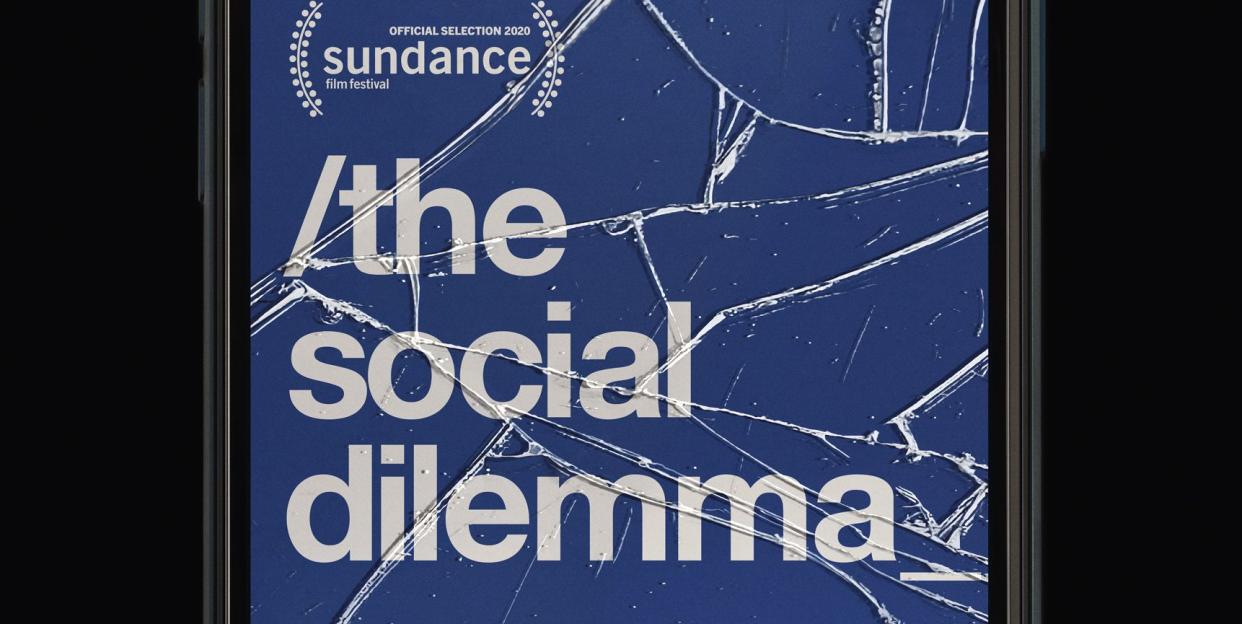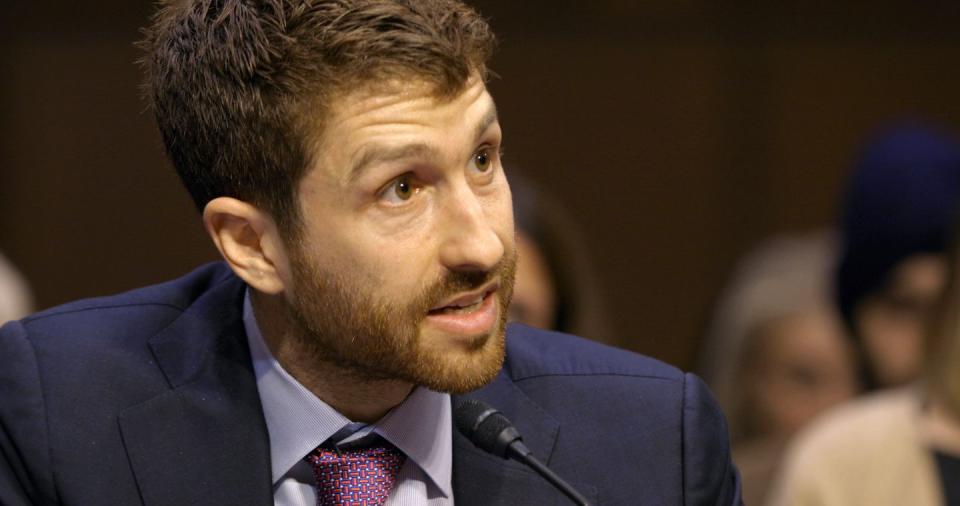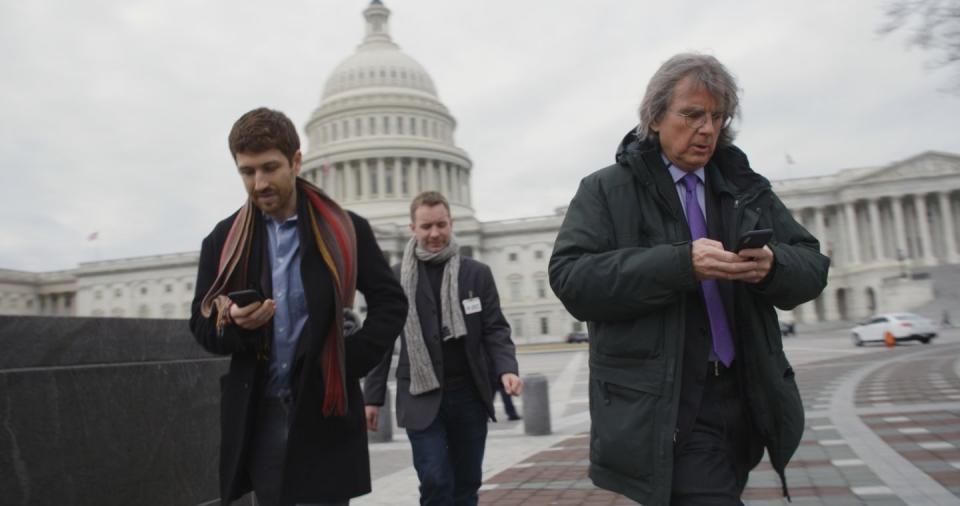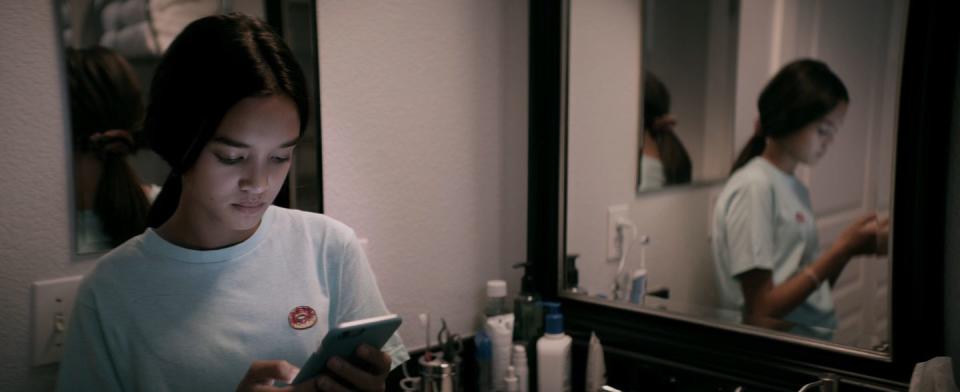The Social Dilemma: Netflix's new social media documentary, explained

Netflix's new documentary The Social Dilemma attempts to expose the ways in which technology giants have manipulated human psychology to influence how we behave.
And if you think that sounds absolutely terrifying, you'd be right.
Social media and an endless catalogue of Apps have been integrated into the daily lives of many for years now. Facebook allows us to stay connected with friends and family around the world, Twitter gives us a read (for better and, sometimes, for very very worse) of what the public is feeling on any given subject, Uber can bring transport and food to our doors at the touch of a button.
While the negatives of such technological developments have been discussed before, from mental health implications to the looming question of data collection, The Social Dilemma goes behind the curtain of the biggest – and most profitable – tech companies, in a way not really presented before.

The documentary includes extensive on-camera interviews with former tech wizards from some of the biggest hitters (we're talking the likes of Facebook and Google). These are merged with a dramatised illustration of how algorithms work, as well as the hypothetical story of how such networks impacted one American family. When you put together all of the singular pieces of the puzzle, it makes for one disturbing bigger picture.
The Social Dilemma highlights the ways human behaviour and habits have been altered by the very existence of such technology. What's more, the functions that are built in – whether that be the introduction of tagging friends on Facebook, or the movement of pulling down and refreshing your feed – are claimed to have been designed specifically to encourage further engagement with such Apps, keeping you on them for longer.
But why do they want that and, more importantly, if we want to keep on scrolling then what's the problem?
As poignantly argued in The Social Dilemma, if you don't pay for the product – you are the product.

Facebook, Twitter, Instagram et al. are all free to use – but, according to this film, that doesn't mean we're not paying a price. Tech companies make billions out of our behaviour, monetising our daily activities.
On top of that, every action we make online is monitored and helps to build a picture of who we are as individuals: what we like, what we don't like, what makes us angry, what makes us sad... You get the idea.
According to the doc, this information feeds the algorithm, and informs what content we'll be served at a later date – again, with the aim of keeping us engaged for longer periods of time.
It doesn't stop with the individual either, as the ripple effects reach so much further. As a result of the algorithms and preferences, our individual social media feeds can become echo chambers – basically reaffirming everyone's world view over and over, most worryingly perhaps even at the expense of objective truth.
An example that was put forward by the tech experts in The Social Dilemma was the flat-earth theory. Anyone that had previously shown an interest in conspiracy theory videos, or might have indicated that they would be more open to engaging in such content, would be more likely to be served something relating to flat-earthers.
This fosters an environment that can ease the spread of false facts and fake news, making it so that different groups of people are seeing (and therefore sure of) very different sets of 'truths'.

People's beliefs around issues can of course have real-world consequence, particularly when it comes to political affiliation. The Social Dilemma looked closely at those aligning with the Republican Party versus the Democratic Party in the United States, arguing that each 'side' had become further and further divided in more recent years. An argument was put forward that, as a result of the 'facts' that each believed, room for debate or constructive conversation was narrower – something that we can probably all relate to experiencing, in one way or another.
This is before we even move into the realm of 'election hacking' and social media's role in the sphere of political campaigning, which was also explored more specifically in The Great Hack documentary (centred around the Cambridge Analytica data hacking scandal) last year.
The Social Dilemma puts forward the compelling argument that, whether we're overtly aware of it or not, technology companies and social media networks pose a very real threat to our communities and our democracies. As things stand, there's very little in the way of regulation or responsibility being demanded of such corporations. The law is some way behind the advancements.
The Social Dilemma ended on a slightly more optimistic note, switching it up to "our social dilemma" and encouraging viewers to reclaim their own technology usage, while highlighting that real change often comes as a result of public pressure.
Maybe this documentary is the beginning of a wider wake up call, and will drive towards more positive innovation?
But for now, let us quickly ask you how many notifications you have had flash up on your phone while you were reading this article?
The Social Dilemma is available on Netflix.
Digital Spy has launched its first-ever digital magazine with exclusive features, interviews, and videos. Access this edition with a 1-month free trial, only on Apple News+.
Interested in Digital Spy's weekly newsletter? Sign up to get it sent straight to your inbox.
You Might Also Like

